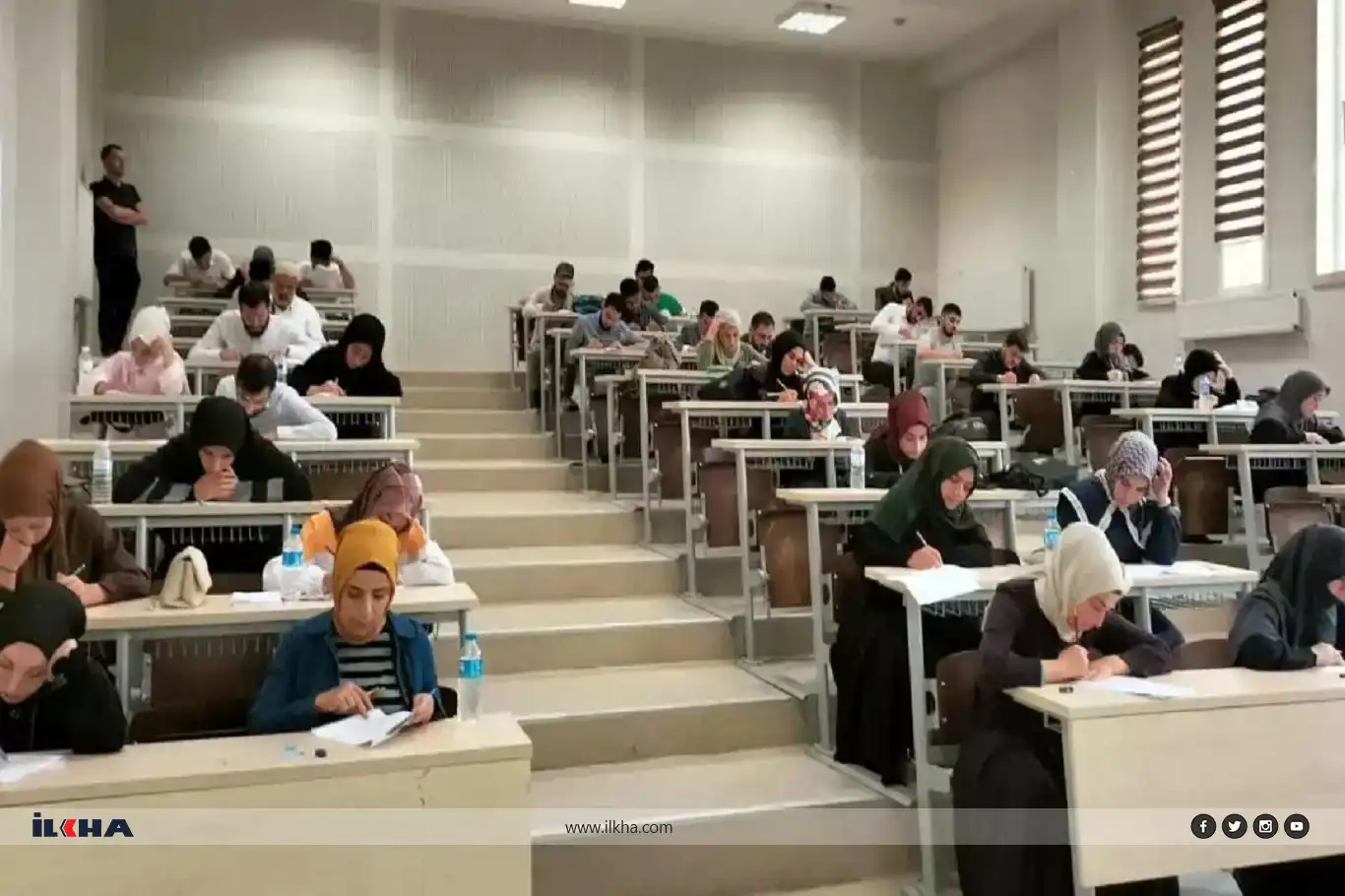Tertiary education rate in Türkiye rises sharply, nearing OECD average


The Turkish Statistical Institute (TurkStat) released new data on Thursday revealing a significant rise in the rate of tertiary education among the population aged 25–34, reaching 44.9% in 2024, up from just 13.5% in 2008.
The growth has been especially notable among women, whose tertiary education attainment jumped from 12.5% to 48.9% in the same period. For men, the rate increased from 14.6% to 41.1%.
This steady progress brings Türkiye closer to the 2022 OECD average of 47.4% for tertiary education attainment in the 25–34 age group. While Türkiye's figure for 2022 stood at 42.9%, it now continues to narrow the gap with leading OECD countries, such as South Korea (69.6%), and remains well above the lowest performer, Mexico (27.3%).
Among the population aged 25 and over, the share of tertiary education graduates has grown from 9.8% in 2008 to 25.3% in 2024. Likewise, the share of those with at least an upper secondary education increased from 26.5% to 49.4% over the same period.
The average years of schooling among the population aged 25 and above reached 9.5 years in 2024. Disaggregated by gender, women averaged 8.8 years of schooling compared to 10.2 years for men.
Regionally, Ankara reported the highest average schooling years at 10.8, followed by İstanbul, Eskişehir, Kocaeli, and İzmir. In contrast, Ağrı recorded the lowest with 7.5 years, followed by Şanlıurfa, Muş, Kastamonu, and Van.
Between 2015 and 2024, Şırnak saw the largest increase in average years of schooling, rising by 51.6%. It was followed by Hakkari (42.1%), Muş (39.9%), Şanlıurfa (38.5%), and Bingöl (37.3%). On the lower end of progress were provinces such as Ankara (13.7%), Eskişehir (15.4%), Tekirdağ (15.6%), İzmir, and İstanbul (15.9% each).
Türkiye's literacy rate among individuals aged 6 and over climbed from 91.8% in 2008 to 97.8% in 2024. The female literacy rate increased from 86.9% to 96.2%, while the male literacy rate rose from 96.7% to 99.3% in the same time span.
The data further highlights patterns of intergenerational educational mobility among individuals aged 25 and over. It shows that 84.4% of those whose mothers attained tertiary education also achieved a tertiary degree themselves, while 80.3% of those with fathers who had tertiary education followed the same path. In contrast, the likelihood of attaining a tertiary qualification was significantly lower among individuals whose parents had less than upper secondary education—only 28.7% for those whose mothers lacked higher education and 27.4% for those whose fathers did.
The figures underscore the transformative strides in education Türkiye has made over the past two decades, reflecting both policy efforts and increased access to higher education across the country. (ILKHA)
LEGAL WARNING: All rights of the published news, photos and videos are reserved by İlke Haber Ajansı Basın Yayın San. Trade A.Ş. Under no circumstances can all or part of the news, photos and videos be used without a written contract or subscription.
Türkiye’s flagship Data Analysis School, launched as part of the country’s broader digital transformation strategy, has earned international recognition after achieving unprecedented levels of engagement and participation.
The Palestinian Ministry of Education and Higher Education has announced that the number of students martyred by Israeli occupation forces in Gaza and the West Bank since the beginning of the aggression on October 7, 2023, has risen to a staggering 20,058, marking one of the darkest chapters in the history of Palestinian education.
A new summer school has been launched by the Hope Caravan Foundation in Van, eastern Türkiye, offering children a blend of Islamic education and recreational activities during the holiday period.
The Nangarhar Department of Labor and Social Affairs, in collaboration with the international NGO ACTED, has successfully rescued 450 children from the streets of Jalalabad, enrolling them in formal education.